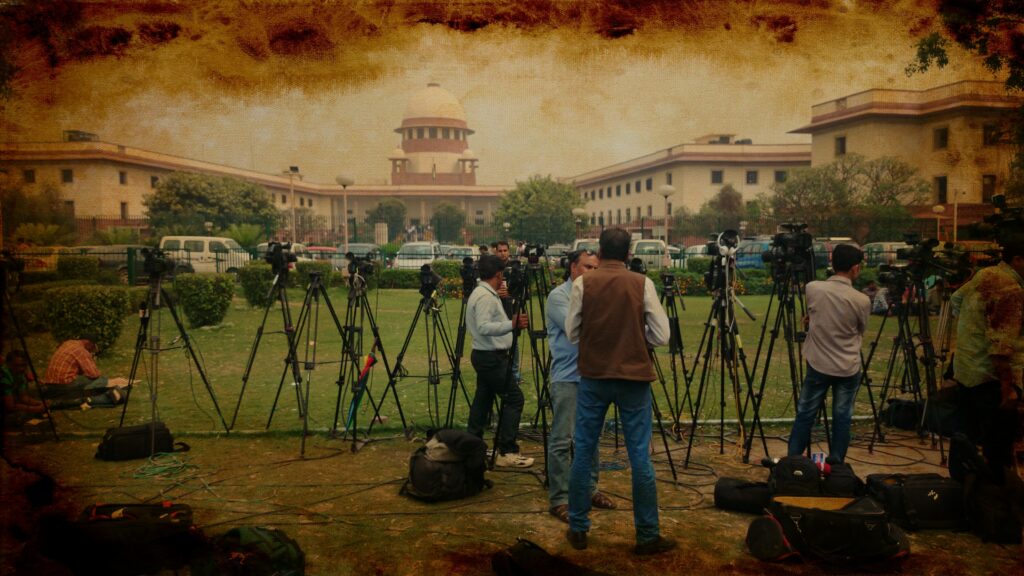
Often we hear from people that the slide in professional standards of lawyers are recent. Lawyers today are interested in profit rather than service. In the same cavalier vien allegations of corruption are made against judicial officers. It is my belief, that such sentiments have always existed, and there is nothing novel in such assertions. Much of this talk is slander which does not deserve comment, however every now and then one notices acts which raise suspicion and call for institutional responses.
For instance, last month a Senior Advocate of the Supreme Court of India mentioned to the Chief Justice of the Court alleged acts of judicial misconduct (read here). I am not repeating them, since the individual facts of the case do not matter as much as the larger point which is sought to be made. This submission made in open court was in succession to a letter written by the Senior Advocate on which action was not (visibly) taken (read here). In all two instances in two different cases were highlighted.
These concerns were shared by another Senior Advocate, a former judge of the Supreme Court, as well as by a letter written by a group of lawyers from Bombay. It is clear that there was cause for concern, and this was more than a case of idle corridor gossip. The institutional response to this has been troubling.
The Chief Justice at a function, stated that the problem lay with the registry rather than the Judges who passed the Order in a matter which should not have been listed before them. If one reads, the letter and the allegations contained in it, they go much further.
- In the first case mentioned in the letter, the matter was suo motu (by itself), taken over by the bench, contrary to procedure and practice. No comments were made as to any inquiry conducted by the Chief Justice. All that is known, is that the government party which is aggrieved by the Order passed will be filing an appeal against it (read here).
- In the second case which way mentioned before the Chief Justice, the original directions for listing came from the Court rather than the Registry by itself. Here, the Chief Justice blamed the lawyers who had the matter listed in the Court, since the Order came to be passed after their submissions. (read here)
In both cases, laying blame at the doors of the registry seemed convenient and with a view to avoid further controversy. Though this is not without precedent. These practices of improper listings and extraordinary accommodations is not of recent vintage. Reading Seervai’s constitutional commentaries I came across the following passages:
“10.152 I have dealt with these questions at length because in my submission, Mukherji J. and Rangarajan J. acted in gross violation of the law, and acted with wholly unjustified haste and hurry in the exercise of the limited jurisdiction to transfer cases. This case and other cases have caused great anxiety to the members of the Bar and to the general public. An order passed by Mukherji J. on October 2, 1988 has brought to a head the dissatisfaction felt by lawyers and the public at some of the orders passed by the Sup. Ct. Sixty advocates of the Sup. Ct. presented a representation to the Chief Justice of India in respect of “equal access to justice in the highest court of the land” because they were rightly disturbed at some of the recent happenings. The advocates referred to the bail application of the industrialist Mr. L.M. Thapar which was heard late in the evening at the Judge’s residence and bail granted. The advocates added that on 19 Aug. 1988 the Sup. Ct. heard and entertained a transfer application on the same day by Reliance Petrochemicals, and passed a blanket stay order- without any notice to the parties affected, Reliance Petrochemicals and passed ex parte injunction restraining the Respondents, including the Indian Express from publishing anything regarding the propriety or legality of Reliance Petrochemicals debentures.
10.153 The Sup. Ct. has suffered from many self-inflicted wounds. But few self- inflicted wounds have struck deep than the Orders passed in Thapar’s case and the two ex parte injunctions granted in the Petrochemicals case. Last, but not the least, of the self- inflicted wounds was the Order passed on 2 Oct. 1988 on Gandhi Jayanti Day at the residence of Mukherji J. granting as injunction in favour of Larsen & Toubro the control of which had recently passed to the Ambanis. This order was passed without there being any urgency which would justify passing an order at the judge’s residence on a national holiday.”
At the end Seervai does not indicate what came of the disquiet of the lawyers or the term of the Judges. Though these instances may have been laid to rest by an efflux of time, a sense of distrust remains. An approach of avoiding open and transparent inquiry with a view to mitigate damage is on the contrary building cynicism towards the Court. A Court does not have the power of the purse or the sword. The primary source by it commands obedience is by its credibility. Without it, nothing much is left.
Leave a Reply